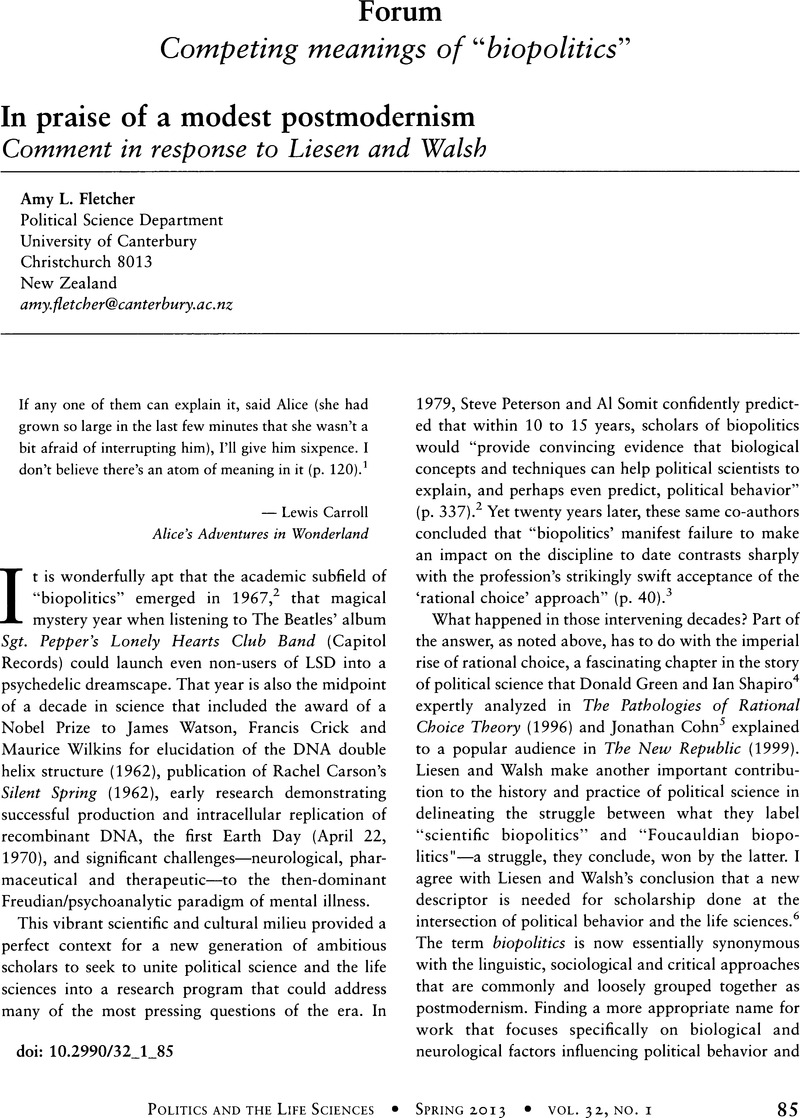Crossref Citations
This article has been cited by the following publications. This list is generated based on data provided by Crossref.
Liesen, Laurette T.
and
Walsh, Mary Barbara
2013.
Embracing intellectual humility: A response to the biopolitics forum.
Politics and the Life Sciences,
Vol. 32,
Issue. 1,
p.
99.
Stewart, Patrick
2014.
Politics and the Life Sciences: The State of the Discipline.
Vol. 12,
Issue. ,
p.
67.
2014.
Politics and the Life Sciences: The State of the Discipline.
Vol. 12,
Issue. ,
p.
243.





